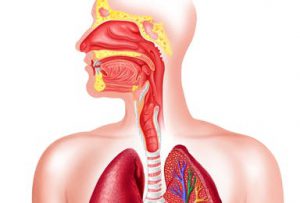
Written by: Anysia Ensslen-Boggs, Ed.D., CCC-SLP
As rehab therapists, spoken communication is an essential part of our work. We are considered “occupational voice users”, which includes anyone whose voice is essential to their job. Our voice is our instrument that we use to communicate with our patients, students, and their families. Have you ever noticed the care musicians take of their instruments? Musicians know how to maintain, clean, and repair their instruments. When they are not using them, musicians put their instruments in a case. Unlike musicians, who put away their instruments when they’re not using them, occupational voice users use their instruments throughout the day.
Some common behaviors can be damaging to your larynx, or “voice box.” Overuse, abuse, or misuse of your vocal mechanism may lead to problems with your voice. Some behaviors include:
- Screaming
- Yelling/Shouting
- Loud talking
- Coughing
- Clearing your throat
- Making vocal noises
- Whispering
Do’s & Don’ts of Vocal Health
 Speak with others at a close range (about an arm’s length), try clapping instead of shouting at sporting events, and avoid talking over noise and loud music. Instead of clearing your throat and coughing, use a hard swallow. Use a softer/quieter voice, but never whisper. If your voice feels tired, take a “vocal nap” and rest your voice. Use good posture; proper airflow from the lungs reduces strain on the vocal mechanism. Daily physical stretching and exercise help to ensure overall health and to strengthen the muscles used for voice and breathing.
Speak with others at a close range (about an arm’s length), try clapping instead of shouting at sporting events, and avoid talking over noise and loud music. Instead of clearing your throat and coughing, use a hard swallow. Use a softer/quieter voice, but never whisper. If your voice feels tired, take a “vocal nap” and rest your voice. Use good posture; proper airflow from the lungs reduces strain on the vocal mechanism. Daily physical stretching and exercise help to ensure overall health and to strengthen the muscles used for voice and breathing.
Dry vocal folds do not vibrate well! Drink water—8 glasses a day is recommended. Lots of caffeine can have a drying effect on the voice, as can smoking and drinking alcohol. In the winter, a vaporizer or warm-air humidifier can help add moisture to the air. If your throat is dry or sore, use sugar-free candy or herbal cough drops. Avoid mentholated cough drops, as they may dry out the throat. Some over the counter and prescription medications may also dehydrate tissues around the larynx, so check with your doctor or pharmacist. If you have acid reflux, this can also influence your voice over time.
As rehab therapists, our voices are essential. Often, we take our voices for granted and do not question vocal health until a problem arises. If you notice that your voice is hoarse or other voice changes that last longer than seven days, seek treatment from a physician, ENT, or other voice specialist. Depending on the changes you are experiencing, voice therapy may be a treatment option.
More information: https://health.clevelandclinic.org/10-ways-to-save-your-voice/
Course options at Summit: Stroke Recovery Strategies; Therapists Rehabilitation Strategies for Dementia Patients
